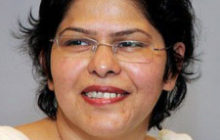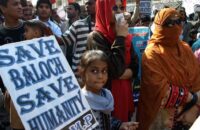Kamran Siddiqui
The public outrage in response to the brutal killing of George Floyd has exposed deep cracks in the US social justice structure. The massive protests are being observed in US and all around the world. People of different races, religions and ages stood up in solidarity with African-Americans in their struggle against racial discrimination.
While expressing desire to fight against racism via physical participation in protests or through social media is highly commendable, one must be well-aware of the moral commitment and obligation that resides with such intentions. Supporting the initiative to eliminate racial discrimination against one community is not limited to that community. It is an implicit commitment to stand up against any racial discrimination anywhere in the world.
Discrimination is not always intentional – many times discrimination occurs unintentionally. While it may be unintentional for the discriminator, the person who is discriminated against, sees the same consequences irrespective of being intentional or unintentional. The unintended or unconscious discriminatory aptitude often develops as a consequence of the environment in which a person grows.
A good example is the skin color-based discrimination which is quite common in different ethnic groups. A good example is the South Asian community, where fair skin color is often a symbol of beauty, pride and admiration. Ironically, darker-skinned people, especially women and girls, often face discrimination starting from within their own families.
When South Asians or people of color stand up in solidarity with Black people against the racism, they must also do a self-check on whether they will also stand up against the skin-color discrimination (or any other form of discrimination) in their own communities. Otherwise, their participation in the Black Lives Matter protests is meaningless and may rather be considered hypocritical. Racism cannot be eradicated by a selective approach.
The fight against discrimination is not limited to racial discrimination, it is the fight against all forms of discrimination, which also includes discrimination based on religion, ethnicity and social status. Again anyone who is standing up against such discrimination faced by any community must realize that this commitment is a moral obligation to stand for every community that faces any forms of discrimination.
However, there are numerous examples where the fight against discrimination is selective or by choice. It has often been seen that people from a religious or ethnic minority group that feel discriminated against, do not stand up for other groups facing similar discrimination, in particular when such discrimination is forced by their fellow co-religionists or ethnic community.
For example, it is very often seen that Muslims, particularly those living in the West who stand up or protest against the oppression or discrimination of fellow Muslims based on religion, completely turn a blind eye when non-Muslims face the same form of oppression or discrimination in Muslim majority countries. Muslims who fight for their religious freedom in the West do not stand up to support the same rights for non-Muslims in Muslim majority countries.
The mass protests against discrimination may lead to some politically correct legislative actions but they cannot eradicate discrimination from the society. It will be a futile effort if participation in such protests is selective or when people choose to condemn a particular set of discrimination while ignoring others. Discrimination can only be eradicated by changing mindsets and it is only possible when people will stand whole heartedly and consciously against all forms of discriminations without any bias or prejudice.
Kamran Siddiqui is a Professor at the University of Western Ontario in Canada.

























